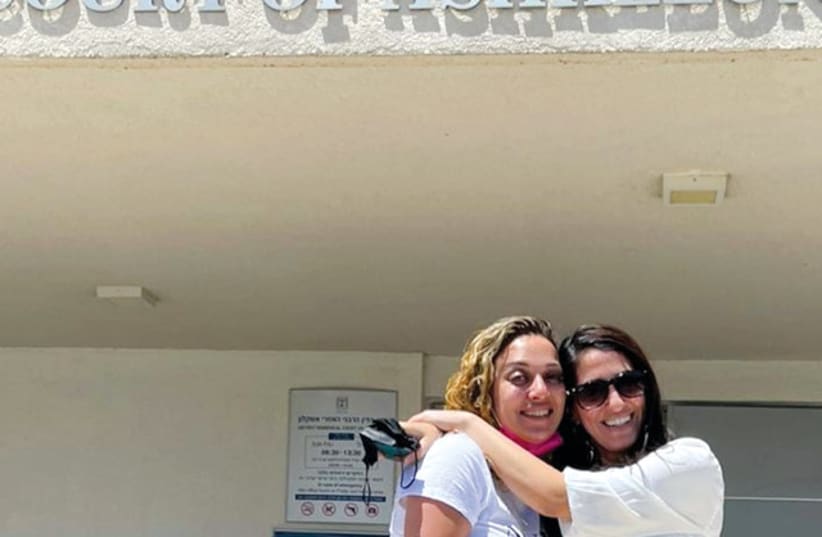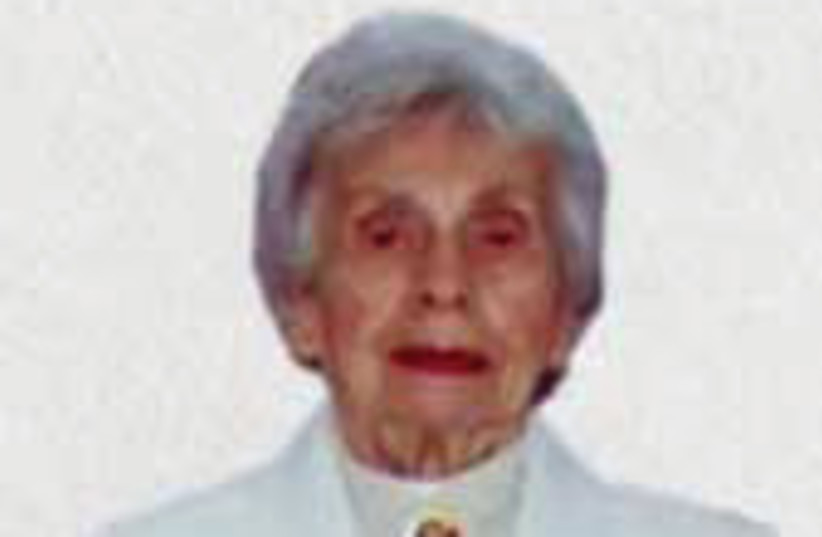Talk about reinventing oneself. Lea Ain Globe made aliya from the US to Israel in her eighties. A compassionate person she opened her home to women who were refused Jewish divorce (agunot) and dedicated her efforts to obtaining legal and emotional support for them. She was overwhelmed by the magnitude of suffering she encountered and decided to draw attention to the issue by writing a book on the topic titled “Mavoi Satum” (dead end in English) in which she recorded numerous stories of agunot. In 1995, Globe named the organization she founded when she was already 90 years old Mavoi Satum.
Soon groups of women volunteers as well as professionals were recruited to offer legal aid as well as therapy to women trapped in violent and failed marriages.
What triggered my interest in this non profit was a touching personal encounter with a young divorced mother of three. That woman told me that without the legal and emotional support she received from Mavoi Satum she would have become a welfare statistic. Thanks to their help she not only survived a bitter divorce but was able to rehabilitate her life. The choice she now made of a partner was so much more compatible after her therapy.
Her friend, whose husband fled the country, was also helped by them. She was told by the rabbinic court that the only way she could get a divorce would be by giving up her ketuba and child support payments. Thanks to the professional help of Mavoi Satum’s lawyer, who negotiated a deal, she could keep the child support payments and only give up the ketuba sum. She would have been left penniless otherwise.
I met with Kylie Eisman Lifschitz,the chairwoman and was very impressed with her passionate commitment to making a difference. Kylie is an Australian born lawyer who volunteered for 20 years before becoming chairwoman.
She explained that Mavoi Satum works to address the problem of divorce refusal not only on a personal level but also on a national level both providing assistance to women who have been refused a Jewish divorce along with advocating for a broad reform in the legal system that governs marriage and divorce in Israel.
Four thousand women and counting have been helped over the last 10 years by Mavoi Satum. Many women who are stuck in abusive marriages and had to give in to blackmailing husbands to buy their freedom have sought and got legal help.
Many in Israel donate to this very worthy cause but most of the financial support comes from US philanthropic organizations such as The Jewish Women’s Fund of Atlanta, The Jewish Federation of Philadelphia, and of Sarasota, Miami Women’s Amutot Initiative Tikkun Olam to name but a few.
The issue of women who are refused a Jewish divorce touches all walks of society.It is a very important issue that affects everyone. It is hard to find someone who does not have a friend, acquaintances or relatives who have had to deal with this issue. Mavoi Satum feel a moral obligation to help the most vulnerable segment of society by opening endless possibilities in a dead-end situation. We have halachic tools to help.
The most notable example is Rav Ovadia Yosef’s, the Sephardi chief rabbi of Israel, ruling after the 1973 Yom Kippur War. Over 1000 women whose husbands were missing in action,presumed dead,would be agunot-“chained” to their marriages and ineligible to remarry under Jewish law. Despite serious halachic challenges, by 1976 Yosef had solved all the aguna cases stemming from the war. In his own words he chose to be lenient in the matter of agunot of women. Blu Greenberg, the pioneer of Orthodox feminism, summed it up best by saying: “Where there is a rabbinic will there is a way.”
The author is a journalist who now resides in Jerusalem. She is the director of Torah Life Center of Potomac, MD

